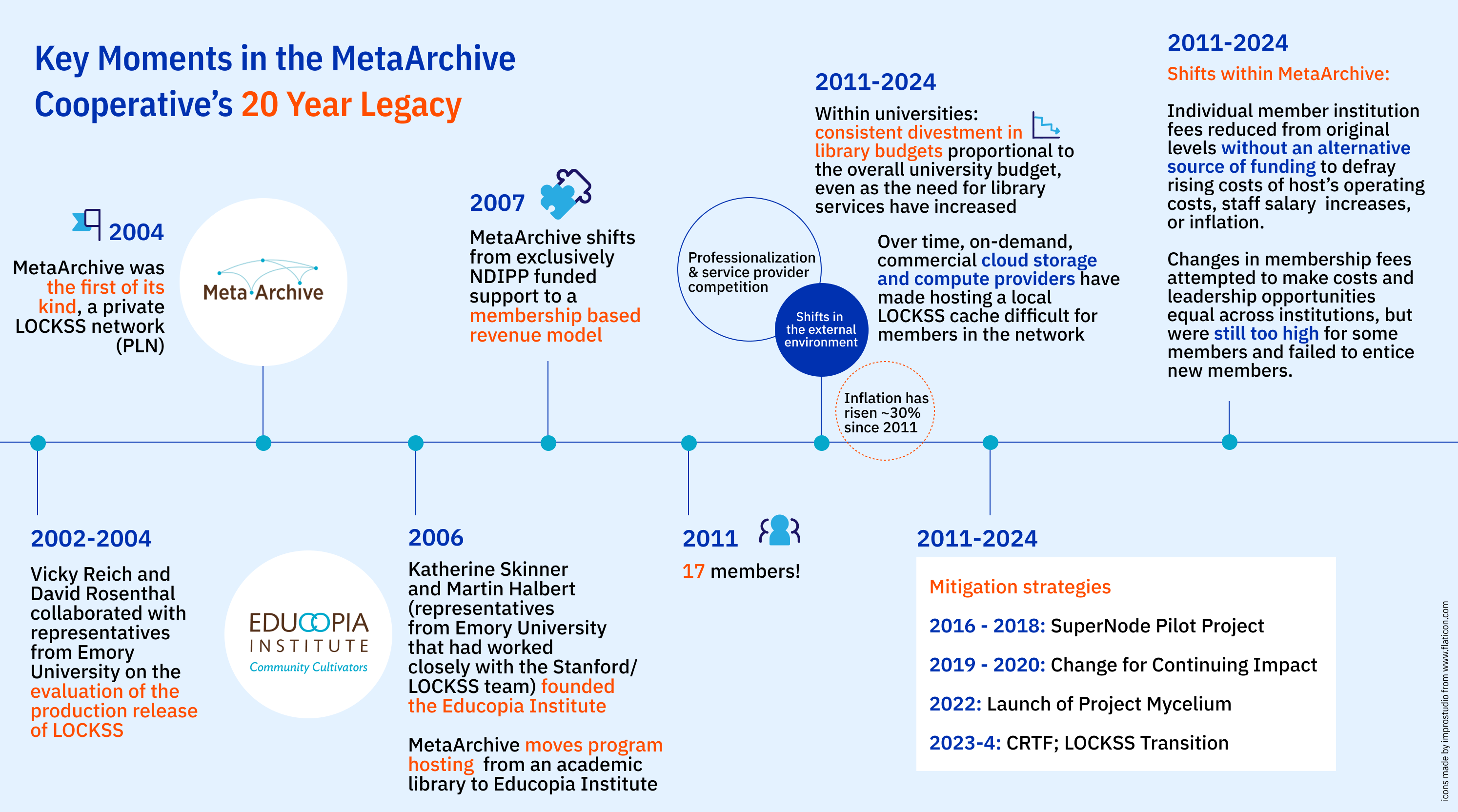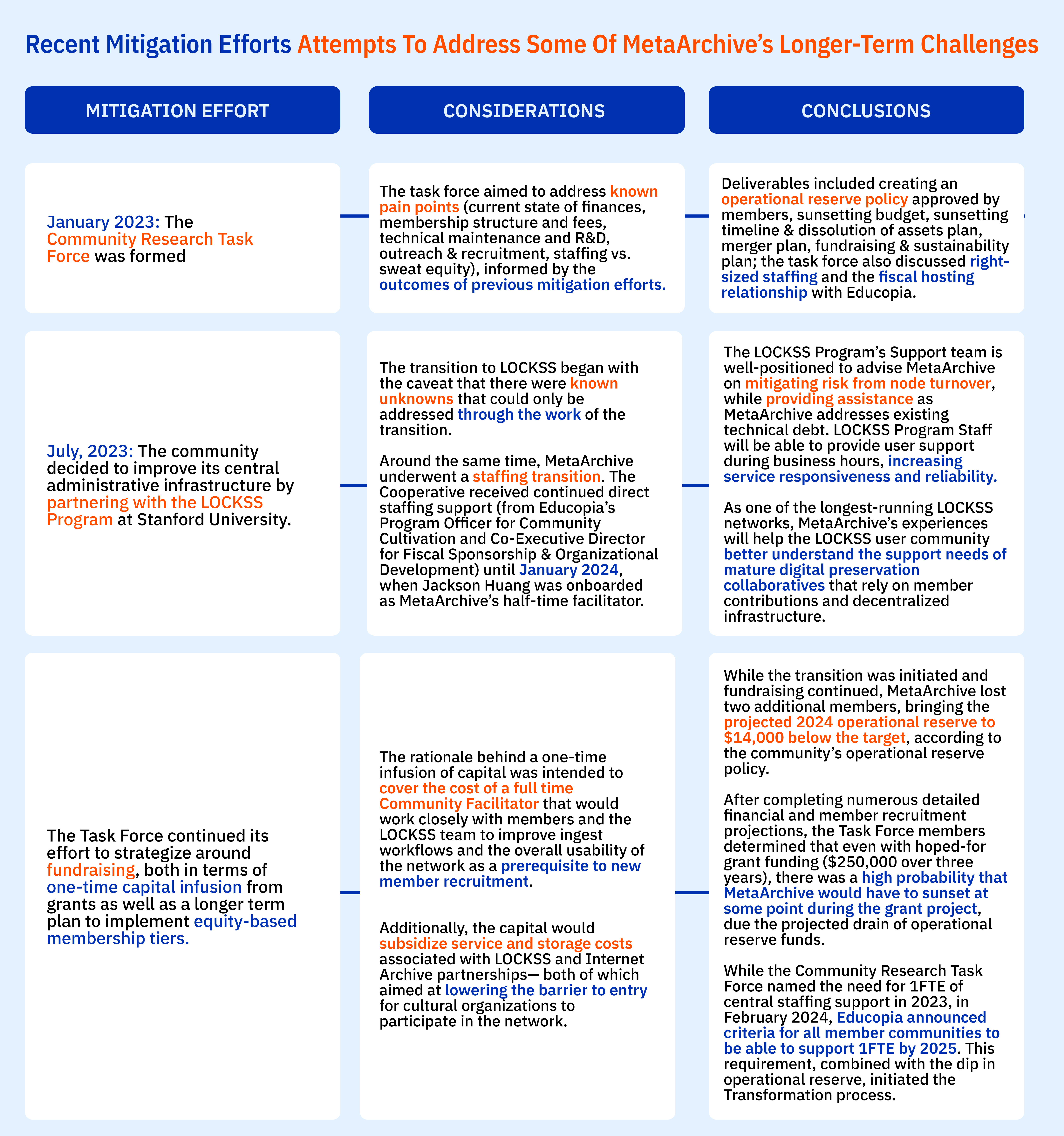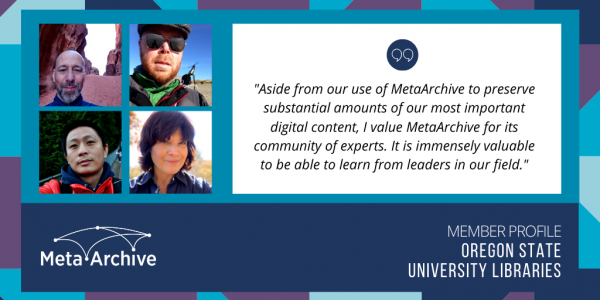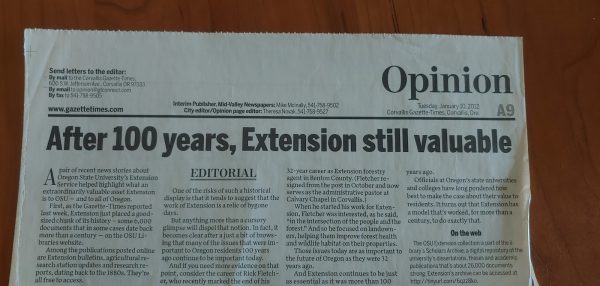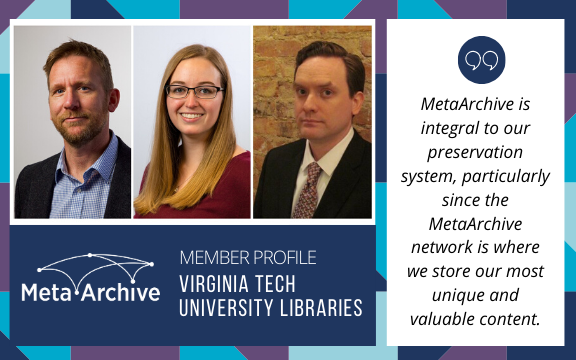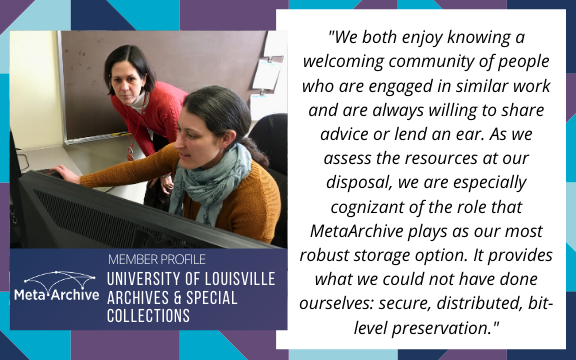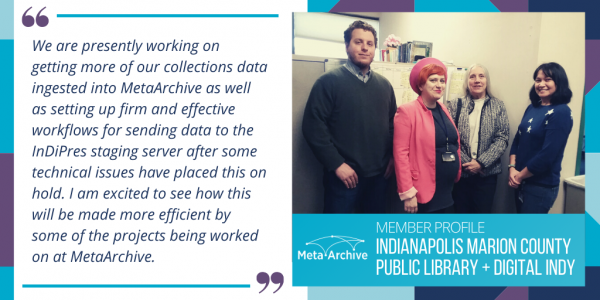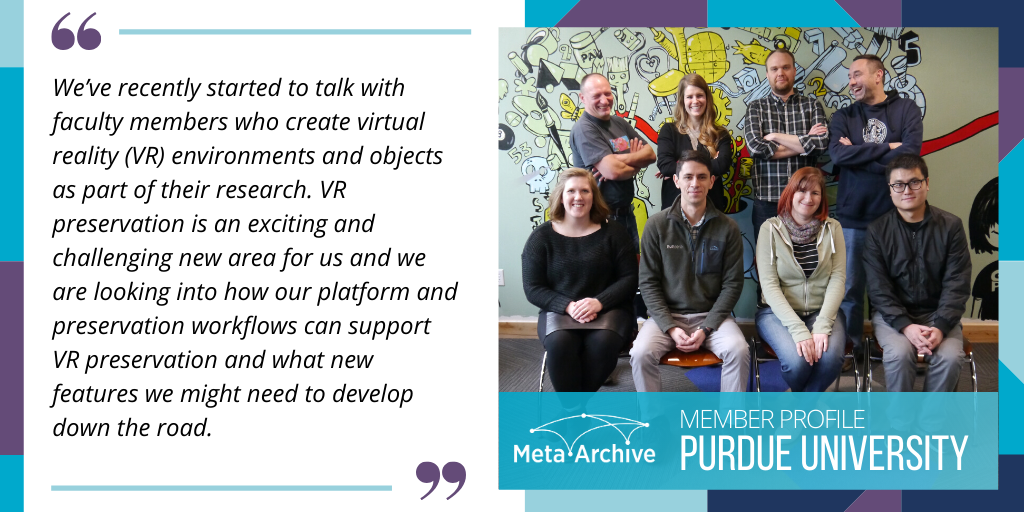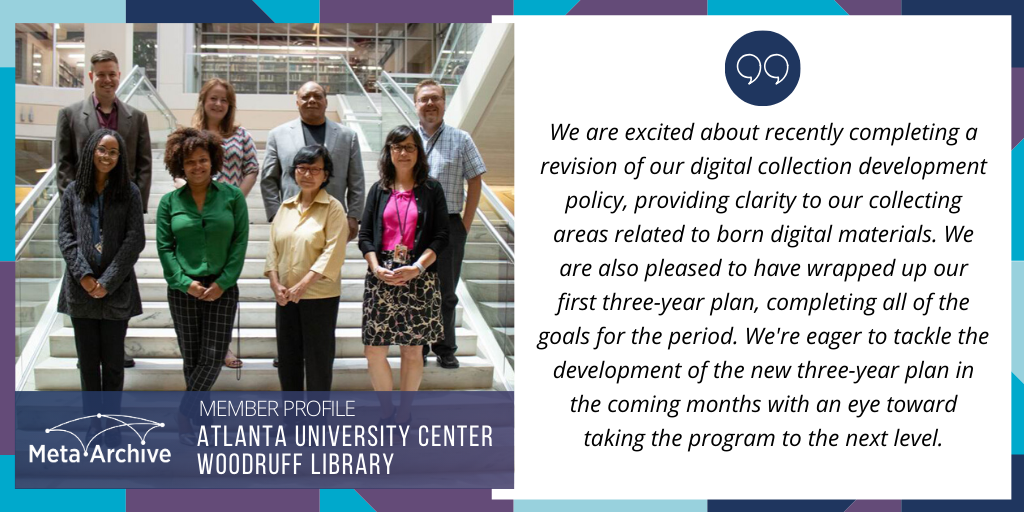September 17, 2024
MetaArchive is Sunsetting: Updates and Learnings from a Community in Transition
When we first announced MetaArchive’s major transition in April 2024, we wanted to create spaciousness, ignite conversations and consider every single potential pathway ahead of us: a member institution becoming our fiscal host; a new organization becoming fiscal host; merging wholesale with another PLN; seeking other options; and more. After weeks of research, consultation, collaborative brainstorming, and synthesis, a final, feasible pathway emerged. MetaArchive Cooperative would sunset, and individual member organizations would either be adopted by other PLNs, or would join together to create new PLNs.
The notion of sunsetting didn’t come totally out of left field. At the end of its second decade of operations, the Cooperative had formed a Community Research Task Force which met weekly for over a year to research, document, present information, and make recommendations to broader membership, enabling them to make evidence-based decisions regarding MetaArchive’s strategic directions. These recommendations resulted in several major community decisions, including approving MetaArchive’s Operational Reserve policy and sunsetting budget. So, even as we explored various mitigation efforts, the reality of MetaArchive’s known pain points (current state of finances, membership structure and fees, technical maintenance and R&D, outreach & recruitment, staffing vs. sweat equity), meant that the premise of sunsetting had always been present; in fact, the outputs of the Community Research Task Force included a sunsetting budget, sunsetting timeline & dissolution of assets plan, merger plan, and fundraising & sustainability plan. Facing the reality of MetaArchive’s long-term sustainability meant taking on responsibility for our next steps—it became the mandate of the Transformation Research Team (TRT), composed of representatives from MetaArchive, Educopia, and the LOCKSS Program, to operationalize the sunsetting process, attending to the nuances of when and how we would initiate the process, and what we would choose prioritize throughout.
This seemingly logical and practical plan had a heavy emotional component. MetaArchive was the first and longest-running Private LOCKSS Network of its kind, and has been consistently defining what it entails to be a digital preservation network created and hosted by and for memory organizations. Our collective ways of working and underlying values deeply influenced our shared philosophy toward digital preservation, as we constantly sought opportunities for collaboration and shared governance while maintaining concentrated initiatives. However, this approach also resulted in an added complexity for our sunsetting process.
Having created such strong, values-driven and trust-based relationships within our network, how would we untangle these connections between members, committees, project partners, and external agencies without causing harm?
In answer to that question, the Transition Research Team named our shared goal: a well-coordinated sunsetting that is mindful, efficient, and done with integrity—demonstrating to all digital preservation stakeholders that endings should be handled with the same attention, investment, and care as beginnings.
To that end we devoted intense planning and preparation, with a focus on:
- Strategizing communications & making space for member input and feedback,
- Ensuring the continuity of our members’ digital preservation efforts,
- Attending to transitional needs,
- and aligning the Cooperative’s finances.
Even as our work continues to evolve, we hope that sharing our decisions, learnings, and reflections may be of value to other organizations in the field who may be negotiating with similar transitions.
Strategizing communications & making space for member input and feedback
Key Takeaways from MetaArchive Member 1:1s and Office Hours:
The TRT deliberated long and hard over the timing and content of our internal and external communications, in order to avoid a situation in which members ended up knowing different amounts of information. Even as we anticipated that members’ would participate in key conversations relevant to their future pathways, we also wanted to ensure that the full context could be shared, and that we received valuable feedback about what aspects of MetaArchive they valued and wanted to retain in their future pathways. To that end, the TRT hosted Member 1:1s to engage with representatives from each member organization to determine their individual contexts, their digital preservation requirements, and potential pathways they might be interested in. Results from these discussions were synthesized and reported back to the MetaArchive community. In parallel, the TRT also hosted office hours in order to provide a space for members to gather between monthly community calls and ask transition-related questions, while encouraging information sharing and collaboration across the membership
Outcomes:
MetaArchive Chair Christine Wiseman says, “The Member 1:1s and Office Hours were critical to ensuring that all members had opportunities to gather information, have their questions answered, and also to provide needed feedback on the process and choices in order to help inform their decision making process.”
Some key takeaways from the TRT Member 1:1s included the fact that the aspect members valued the most about MetaArchive’s ways of working was the focus on community. Members appreciated that they could support each other through peer learning and workflow development, preferred working as a network of organizations rather than 3rd party vendors, trusted that their data was safe with LOCKSS boxes, and valued MA’s community-owned governance model, that allowed them to be involved in shaping the direction of the network across time. We also unearthed challenges that members had been facing thus far: storage and costs constraints, staffing and capacity, and reliable functionality. This was also a moment for us to gauge the pulse of the field, as we checked in on the values, resourcing, challenges, and solutions informing digital preservation efforts at various institutions.
The information and insights that emerged from these conversations went on to inform a LOCKSS-recommended matrix for individual member adoption by other PLNs, as well as the creation of new PLNs.
Ensuring the continuity of our members’ digital preservation efforts
Cluster calls for individual member adoption by other PLNs/creation of new PLNs:
Based on the member 1:1s and the subsequent LOCKSS-recommended matrix for individual member adoption by other PLNs, the TRT coordinated cluster calls with prospective adopters and adoptees in order to identify the timelines, next steps, and necessary resources to successfully navigate different facets of this transition. The cluster calls brought multiple stakeholders together to discuss next steps, including formal application and approval, migration of data, and technical requirements and processes for connecting new nodes and replicating new content network-wide.
Outcomes:
When it came to deciding on future pathways for our members, all of these evaluations and conversations allowed us to narrow down to two major approaches:
- Near-term: Ensuring that all existing members know where their data will be stored and preserved in 2025.
These pathways can be implemented within the designated Transformation time frame.
a. Individual members (whose needs map to existing PLN offerings) adopted by different PLNs
b. Individual members (whose needs do not make to existing PLN offerings) evaluate a non-LOCKSS option - Long-term: Addressing the need for more, targeted LOCKSS-based options.
These pathways can be discussed but not implemented within the designated Transformation time frame.
a. Some existing members set up smaller PLNs
b. Some existing members set up a PLN with new external partners
At the current moment, based on the size, scope and types of data they have in storage, many of our members have been matched for adoption by existing PLNs. Other members with regional affinities have been grouped together to create new PLNs; these new PLNs are at different stages in their journey: some have begun work on new grants, while others require more research and conversations before formalizing their formation. For those members whose needs do not match existing PLN offerings, the TRT is completing some research into short-term LOCKSS-based storage, in order to offer them a stop-gap service until they are able to implement a robust solution. For members that require transitional, stop-gap support from the LOCKSS program, the TRT is seeking to answer key questions around time frames, costs, communication channels, and other considerations, needs, and expectations.
Attending to transitional needs
Asset Disposition Mapping, Committee Chair feedback, Transition Support
To ensure a smooth transition, the TRT is reviewing MetaArchive assets, including financial, documentation, platforms, technology, and other business documents, to determine retention, archive, and transfer plans for each asset. We’re also coordinating with the Chairs of MetaArchive’s various committees to address how we might support the wind-down of business-as-usual, which includes attending to outstanding tasks, transferring documentation, coordinating a knowledge transfer to other PLNs, and identifying a point of contact for any questions that might arise during the course of the transition. Finally, the TRT has made inquiries regarding a potential repository home for the MetaArchive records/collection.
Outcomes:
These activities have put a spotlight on the need for the historical documentation of our own memory organization, telling the story of the development and growth of MetaArchive through its partnerships, activities, and initiatives. Since most of our members are staying within the LOCKSS system and either being adopted by other PLNs or starting new PLNs with transitional storage support from the LOCKSS Program, the TRT is focusing on organizational assets, rather than member assets. We’re using conversations with the PLNs in formation to help us understand what materials are needed to help develop governance structures, and trying to pull organizational assets that would be useful. Templates of community developed documents provide a collection of materials that can function as structural guides that other folks can utilize to inform development of documentation and resources for their own context. Throughout, we are considering options and making decisions on the most functional methods for sharing and storing organizational content.
Aligning the Cooperative’s finances
Sunsetting Budget and Plan Revision:
Building on the long-term budget planning from the CRTF, the TRT revisited the sunsetting budget to ensure there are sufficient funds for a year-long sunset plan to better support member needs. Final SOWs and contractor costs are being incorporated into the sunsetting budget, acknowledging and supporting the human labor from the LOCKSS program, Educopia, and other contractors for transition work.
Outcomes:
We currently have significantly more clarity on the full costs of completing this process. However, with all of our moving parts and emergent information, final numbers around revenue and expenses are still a moving target until the end of the year. If there are remaining funds when the process is completed in 2025, the community determines what they would like Educopia to do with them (e.g., donate remaining funds to a digipres conference scholarship fund).
As we conclude this detailed account of MetaArchive’s sunsetting process, it is clear that the journey has been as nuanced and emotionally charged as it has been methodical. Our focus on thoughtful planning and community engagement has allowed us to address complex challenges while honoring the deep-seated values and relationships that have defined MetaArchive’s legacy. We remain committed to supporting our members through this process and will continue to provide updates and reflections as we move towards the final stages of our transition. As always, we invite you to contact us to address questions and concerns:
Email <ma_trt@educopia.org> if you have a question for the Transformation Research Team (which includes representatives from MA membership, Educopia, and the LOCKSS Program)
Email MA Leadership Chair, Christine Wiseman at <cwiseman@auctr.edu> or MA Leadership Chair Elect, Reid Boehm at <riboehm@purdue.edu> if you have a question specific to MA Leadership
Email MA Treasurer and Chair of Outreach & Member Services Committee, Alex Kinneman at <alexk93@vt.edu>, if you have questions about the MA Operating Budget or information sharing about the Transformation
Email Educopia Co-Director <jessica@educopia.org> if you have questions about Educopia’s changes to membership community fiscal hosting criteria or questions about Educopia more broadly.
Email MetaArchive’s Interim Community Facilitators, Brandon Locke at <brandon@educopia.org> and Jessica Meyerson at <jessica@educopia.org>
